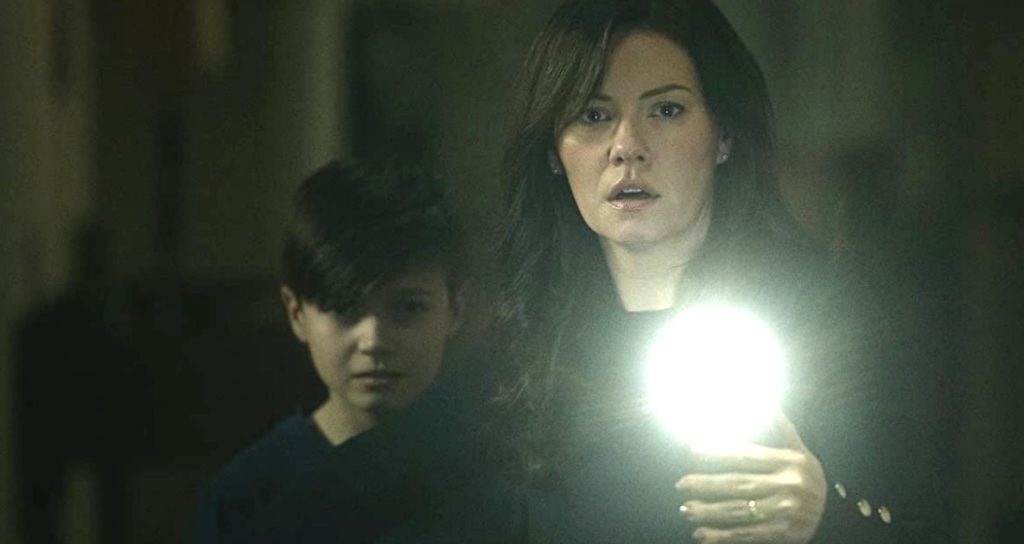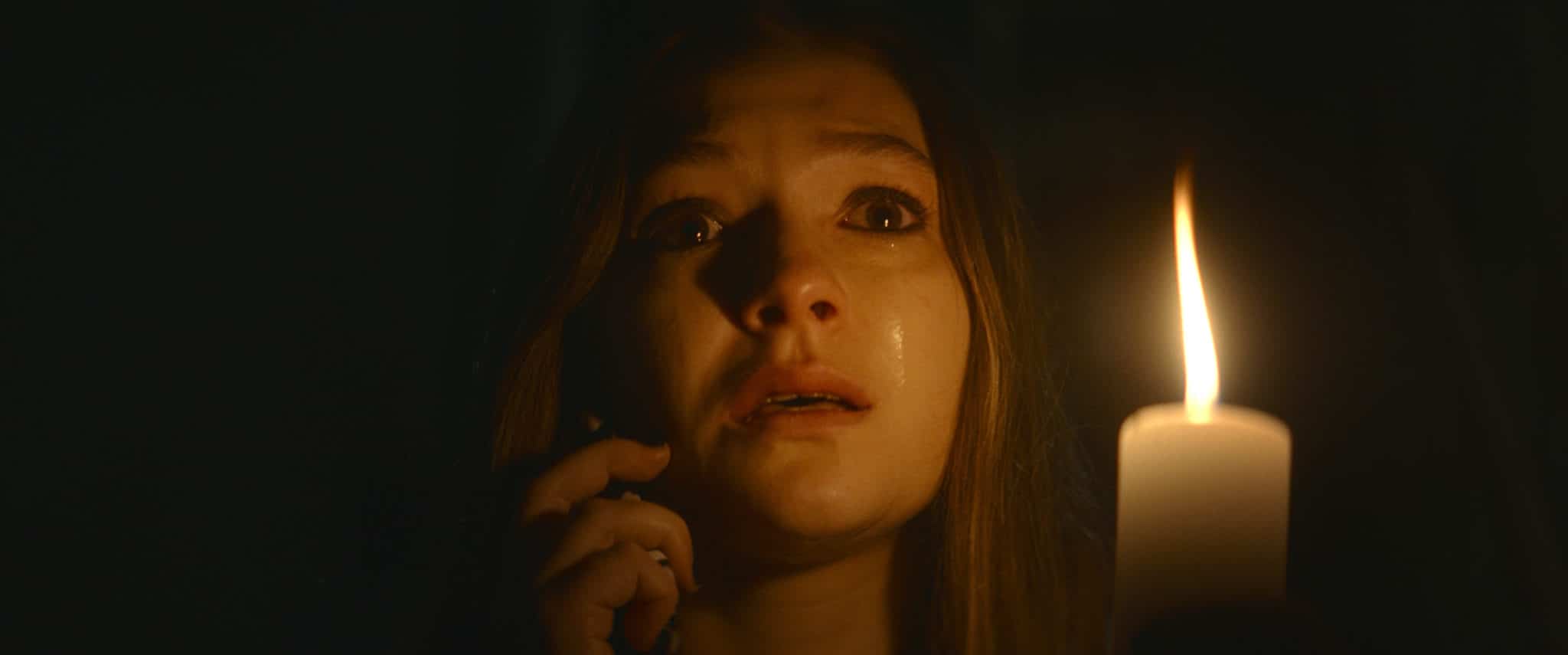
Now here’s a risky idea: returning to a short film, around seventeen years or so after making it, hoping to expand the universe of that film into a feature-length. A big ask at the best of times, no? Whilst it’s certainly not the first time this has been done, The Cellar (2022) was always going to have a hard road ahead; this is because The Ten Steps (2004), the short film in question, is an absolute masterclass in that format. Whenever I want to make the case that short films are criminally underappreciated by audiences, I show people The Ten Steps. The film’s so effective because it does just enough of everything you need in good storytelling – establishing character, building a narrative – and only tantalises at something bigger, something terrifying, coming as it does via a terrific punchline. If you haven’t seen it and you have ten minutes spare, click the above link and enjoy.
This brings us, then, to The Cellar – same writer and director, Brendan Muldowney – and how to maintain that same careful handling across ninety minutes, whilst simultaneously building in detail. If anything, The Cellar is a lesson in just how difficult that process is; it feels somehow like this wasn’t quite the film intended, or at least not quite like this. In any case, aspects which work brilliantly across ten minutes struggle across another eighty, and unfortunately, several issues are writ large across the newer film – some understandable, some rather more baffling.
We begin with a familiar-seeming family moving into a gloomy old house somewhere in Ireland; mother and daughter Keira and Ellie (Elisha Cuthbert and Abby Fitz) sound American; father Brian (Eoin Macken) seems to lurch between sounding American and Irish, and younger son Steven (Dylan Fitzmaurice Brady) sounds clearly Irish. Accommodation Theory in action? Anyway, the move is an unwelcome one to teenager Ellie, a girl so immediately, unnecessarily surly that you find yourself feeling sorry for whatever supernatural force may end up with her. It turns out, by the by, that the move has been prompted by the parental business, a social media management company – and this is our new set-up for both parents being out of the house when the fuses in the gloomy old house blow…
This situation has seemingly already been exacerbated as brother and sister have found – and played – an old record which seems to consist not of Sumerian, but mathematical equations. In fact, the house seems full of mathematical equations and ominous lettering, carved above doors and into floors; as Ellie descends into the cellar to throw the fuse switch and the storyline of The Ten Steps ends, it’s clear that the symbols are going to be a plot key, and it’s not a bad idea at all. There’s a dash of Thirteen Ghosts (2001) here, and more than a few nods to Fulci’s best horror movies too. Now newly aware of the strange nature of the house and its mysterious previous owner, Keira takes charge of investigating Ellie’s disappearance: she knows she has to solve these puzzles somehow if she is to get her daughter back.
But by god, it’s slow going: where some of the most potentially interesting hooks are barely explored (how did that creepy phonecall actually end?) a fairly aimless pondering of the house’s secrets takes up far too much time, harming the film’s plot and yet doing little to counterbalance this with adequate characterisation, despite Elisha Cuthbert’s best efforts. There are some scares, but as the best of these were already well-established, the others struggle to match up to it – or else repeat it. Sure, the film holds onto some far more interesting world-building for its final act, but after such a wait this feels like it needs closure which we could happily do without in the short film; this isn’t forthcoming, sadly, the demonic maths angle remaining frustratingly underdeveloped, simply another means of talking about demonic entities in the end.
Supernatural storyline aside, there are some additions in the script which only help to further fracture basic plot coherence: it always feels like, in order to accept the fantastical, you need to believe in the humdrum first. You need a firm foundation.
Whilst the family set-up in The Cellar is by no means completely implausible, a few choices stand out as odd. Firstly, making the family business into social media managing feels like an attempt to modernise the storyline that will ultimately age far more quickly than a works dinner (as shown in the earlier film) and seems rather thin. Would an expert in social media really have no concept of her own daughter’s social media presence, not any of it? Would an expert in social media really think Hebrew is a ‘font’, and also be unable to Google this for herself, needing an assistant to do it for her? The other expert we briefly encounter in the film maybe had it tougher: he was a regular Joe, he explains, until a head injury turned him into a maths genius. Why this needs to be added to the storyline is unclear. To reiterate, these things are not entirely unbelievable, but they represent script choices which beg many questions, in a film which has enough questions on the go.
The Cellar was always going to be a difficult proposition then, and unfortunately it cannot match up to the bold exercise in economy which audiences got with The Ten Steps. The film looks good and sounds great, but ultimately The Cellar fails to furnish us either with a compelling expansion of the original universe, or with anything new enough to excite. It does, however, serve as a hearty reminder of the brilliance and potential of short film, perhaps particularly in horror, where a mere hint at causation can be more than enough to scare. Feature-length films need something more, and we need more from them.
The Cellar (2022) premieres on Shudder on April 15th, 2022.
